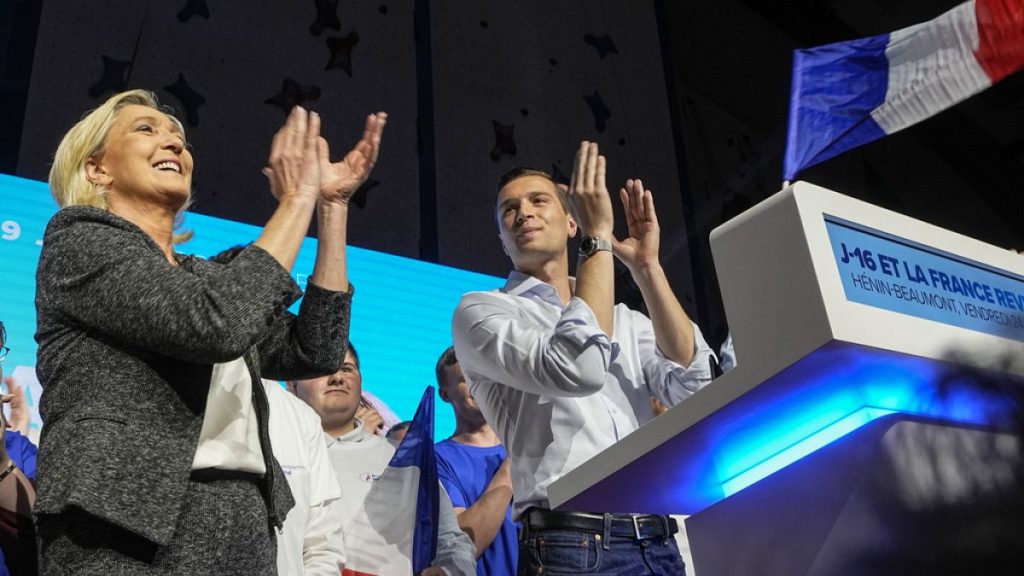Sympathisers, journalists and politicians gathered in the French town of Hénin-Beaumont to see far-right European election candidate Jordan Bardella and former National Rally leader Marine Le Pen. Young voters were particularly attracted to Bardella’s charisma and fresh approach to politics. With over 1 million followers on TikTok, Bardella is popular among younger demographics, despite some resistance from peers influenced by parents’ perceptions of the far-right party’s past reputation.
The National Rally, led by Marine Le Pen for over 40 years, has undergone efforts to appeal to mainstream voters and distance itself from its xenophobic history. In 2022, Le Pen chose Bardella as her successor, a decision supported by many supporters, including long-time voter Francine. Bardella’s campaign has seen significant success, with polls showing him leading with 33% of voting intentions compared to 16% for Macron’s party. Bardella’s strong stance on defending France’s identity against migration resonates with supporters in towns like Hénin-Beaumont, which have been impacted by deindustrialization and high unemployment rates.
The town’s historic ties to the far right make it a significant location for Bardella’s campaign rally. Bardella has emphasized his love for France and the French people, focusing his campaign on themes of identity and immigration. His speech at the rally criticized President Macron and Prime Minister Attal, urging the public to vote in the upcoming EU elections to defend their country against migrants. Hénin-Beaumont’s history of coal mining and economic struggles, combined with immigration issues, provide a backdrop for Bardella’s message, resonating with local residents.
A potential shakeup in the EU far-right landscape occurred when the National Rally excluded the German far-right party AfD from their European Parliament faction after controversial remarks about the SS. This decision has led to the need for new alliances and strategies ahead of the EU elections. The National Rally aims to expand its Identity & Democracy group by forming alliances with other nationalist parties. Complexities arise with potential mergers with more moderate groups like ECR, as differences in views on Russia and other issues pose challenges. The post-election landscape is expected to bring surprises, as parties maneuver to establish their positions and priorities in the European Parliament.













